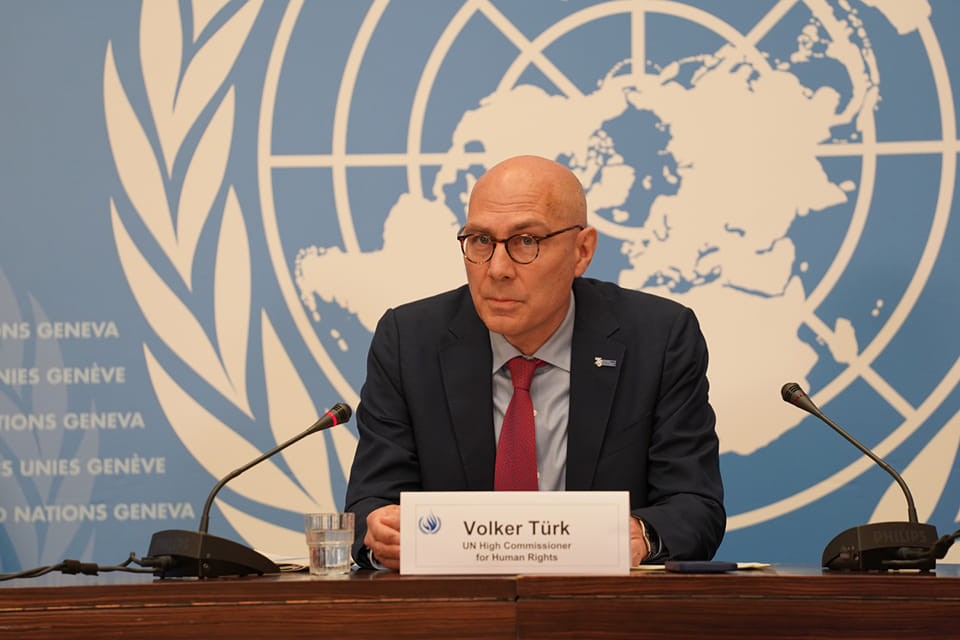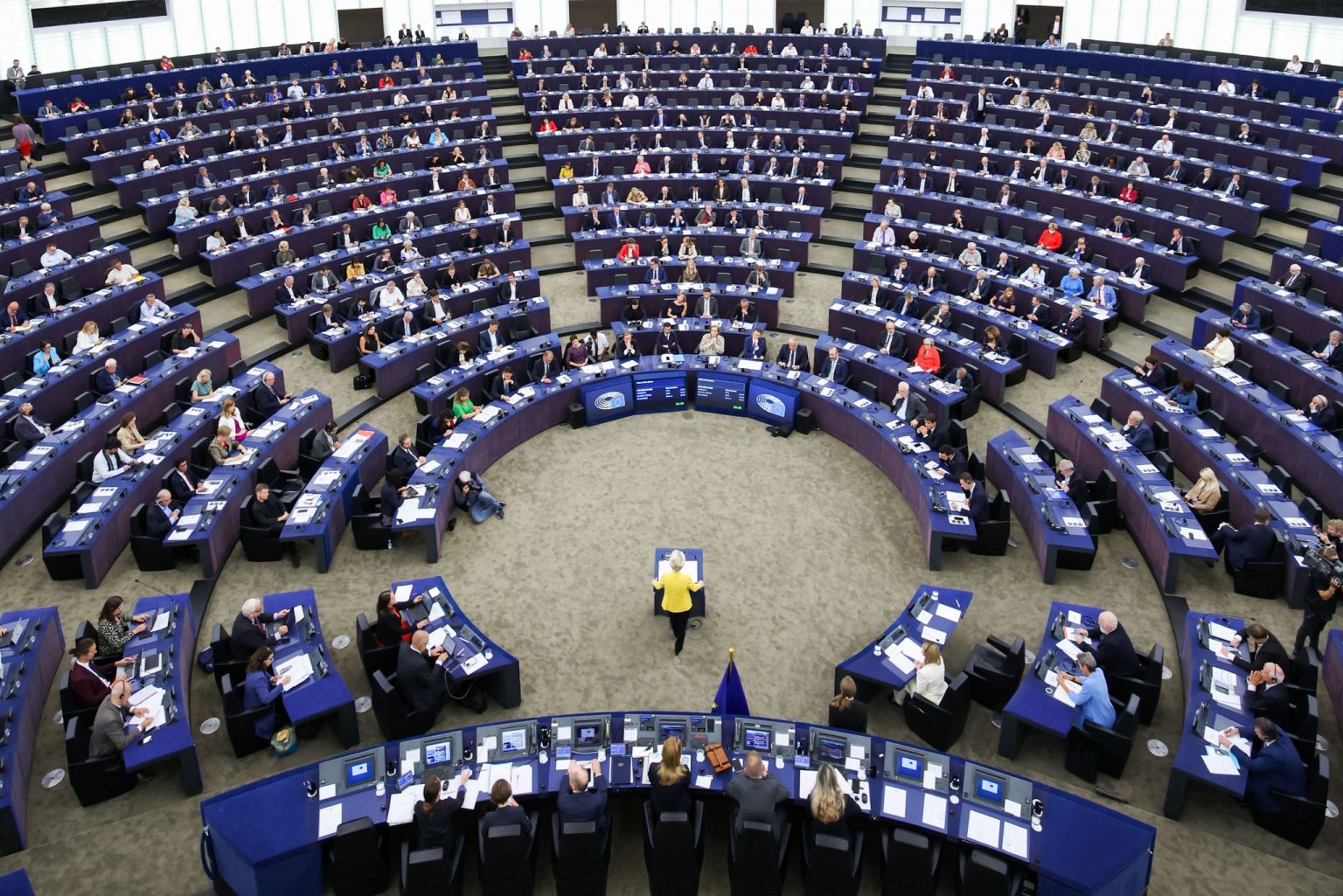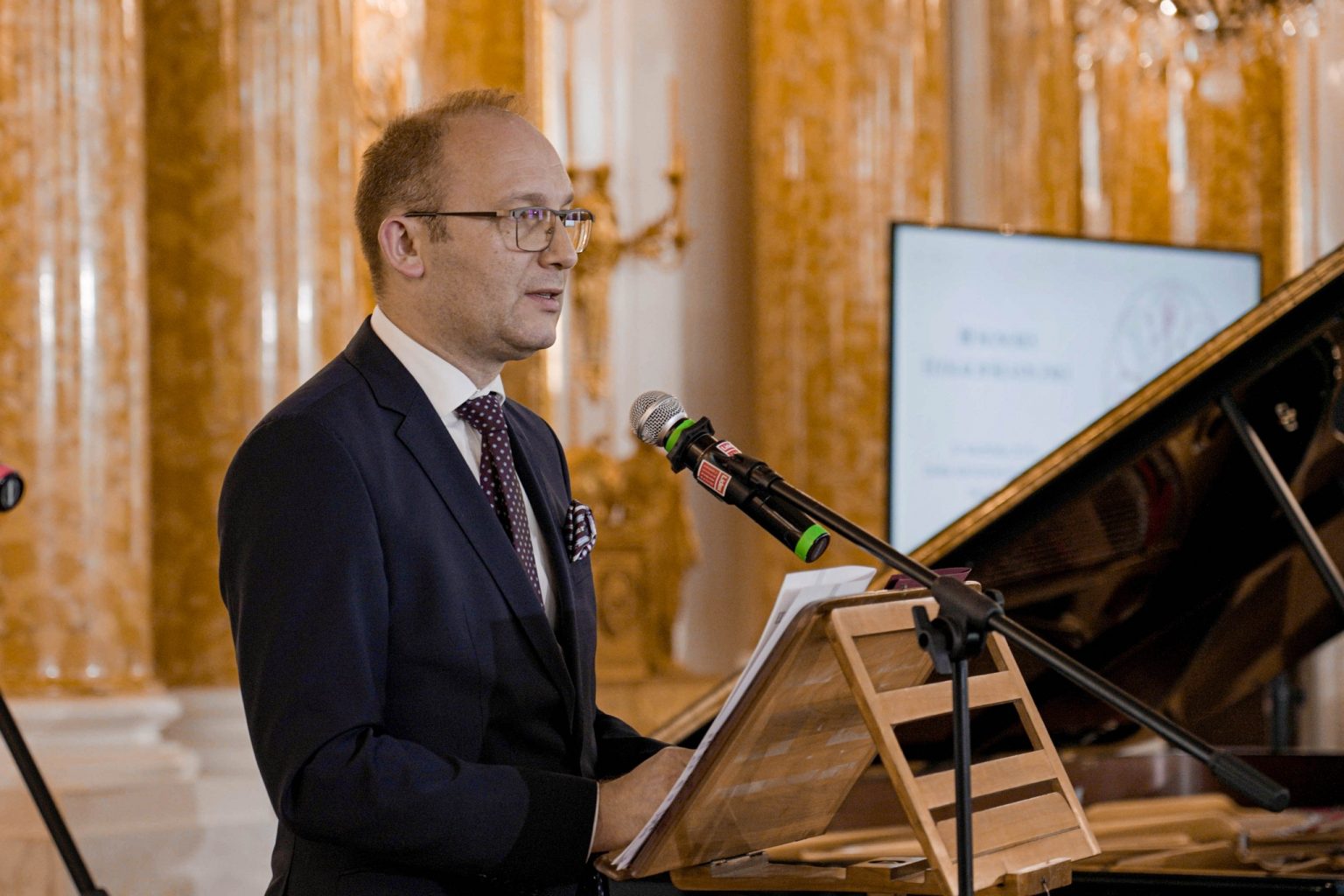World
Out in the World: LGBTQ news from Europe and Asia
United Nations Human Rights Committee raised concerns over LGBTQ rights in US

United Nations

In its review of the U.S.’ record on civil and political rights released earlier this month, the United Nations Human Rights Committee condemned a flood of discriminatory state legislation restricting the human rights of LGBTQ
The committee’s summary was first reported on by Human Rights Watch.
“The United States ratified the International Covenant on Civil and Political Rights (ICCPR) in 1992. Every four years, the HRC reviews laws and policies in countries that have ratified the treaty to evaluate where they are in compliance with the treaty and where they fall short. The review of the US was postponed during the COVID-19 pandemic, making this the first review of the US in nine years.
Among the worrying U.S. laws are those restricting access to gender-affirming care and prohibiting transgender children from participating in school sports or using bathrooms consistent with their gender identity. Also concerning are laws banning books as well as prohibiting classroom instruction on sexual orientation or gender identity, LGBT people and their families in schools.
In its concluding observations, the committee expressed concern about laws limiting transgender people’s access to healthcare, athletics and public accommodations, and restricting discussions of race, slavery, sexual orientation and gender identity in schools. It underscored the prevalence of discrimination against LGBT people in the U.S., including in housing, employment, correctional facilities and other domains.
The committee also condemned derogatory speech aimed at LGBT people, including from public officials, and violence against LGBT people and members of other minority groups.”
Russia

TNT Music, which is owned by parent company Fonbet, the largest sports betting company operating in Russia and Kazakhstan, altered a video of the South Korean K-Pop boy band Seventeen’s hit song “God of Music” that showed a rainbow.
TNT Music transformed the rainbow featured in the original video into a gray cloud.
According to the English-language Russian news outlet the Moscow Times, TNT Music appears to have erred on the side of caution after a Moscow court fined its owner Fonbet TV 1 million rubles ($10,800) in July for violating the country’s draconian “LGBT propaganda law” when it aired Finnish singer Alma’s music video for the song “Summer Really Hurt Us.”
In a March 2019 article in British publication Gay Times, Alma confirmed she is a lesbian and in a relationship with Finnish poet and human rights activist Natalia Kallio.
The channel faces another fine of up to 16 million rubles ($174,000) on four administrative charges of spreading “LGBT propaganda” among minors, according to Russian state media.
The Russian Federal Service for Supervision of Communications, Information Technology and Mass Media, abbreviated as Roskomnadzor, has been directed to ban any websites that contain information about LGBTQ identities or anything that could be construed as promoting LGBTQ related materials.
According to the Moscow Times, there was fear that the rainbow and an all-boy band would provoke Roskomnadzor into fining TNT again.
Latvia

In a Nov. 9 vote, Parliament voted to allow same-sex couples to establish civil unions-partnerships, which gives same-sex couples in this Baltic state legal recognition, but fewer rights than married couples.
The country’s Prime Minister, Evika Siliņa, issued a statement applauding the actions by lawmakers.
“This is a good day. Society has taken an important step in creating a modern and humane Latvia. With the Saeima supporting the introduction of registered partnerships, the state has fulfilled its legal obligations and given a clear signal that all families are important. Thanks for the intelligent vote!” the prime minister said.
The action by Latvia’s Parliament comes five months after lawmakers in Estonia approved a law that extended marriage rights to same-sex couples in that Baltic nation. However, while the new law allows hospital visiting rights, as well as some tax and social security benefits, the law falls short in other critical areas say LGBTQ rights activists.
Speaking with Reuters, Kaspars Zalitis, a gay rights activist, noted same-sex couples would still not be able to adopt children and would continue to face inheritance issues.
“This is a great beginning … Latvia is not one of the six countries in the European Union that have no recognition for same-sex couples,” he said.
European Union

A new global call for civil society organizations projects with a projected total budget of 36 million euros ($38.47 million) under a expanded program on Human Rights and Democracy (part of NDICI/Neighborhood, Development and International Cooperation Instrument – Global Europe) was announced on Nov. 7.
The present Global Call for Proposals targets:
- “Fair, Accountable and Inclusive Trade and Business – Flagship Action on Business and Human Rights, Forced and Child Labour and Indigenous Peoples’ Rights;”
- Global, regional or multi-country projects targeting high-risk sectors, value or supply chains that will contribute to the accompanying measures of the upcoming Corporate Sustainable Due Diligence Directive and Forced Labor Regulation.
- CSOs will be better equipped to monitor, report, access remedies, partner with the private sector and/or social partners and advocate for the implementation of relevant EU and international human rights principles and legislations. Projects financed will contribute to the sustainable implementation of the Global Gateway Strategy by reinforcing relevant social and environmental standards.
- “Global actions on human dignity, non-discrimination and inclusion;”
- Projects will promote equality, inclusion and respect for LGBTQ+ persons at global, regional or national level and more specifically in Sub-Saharan countries where consensual same-sex sexual acts between adults in private are criminalised. Priorities will include advocacy for anti-discrimination laws, support to social inclusion and empowerment of CSOs working on LGBTIQ rights.
- Promote Freedom of Religion or Belief, and prevent and combat discrimination, intolerance and violence on grounds of religion or belief through regional projects. Under this lot, intersectionality between freedom of religion or belief and gender issues is encouraged.
Projects will be global, multi-country or regional. The lead applicants should be international organizations given the size of the grants and geographic scope, with at least one local co-applicant and mandatory financial support to local organizations.
France

Attorneys representing Groupe des familles LGBT filed a criminal complaint against Seattle-based Amazon Prime for replay of the Sept. 24 soccer match between teams Paris Saint-Germain and Marseille, where homophobic chants were clearly audible.
According to the French English-language news outlet Le Monde, During the match between the bitter rivals, thousands of Paris Saint-Germain supporters chanted homophobic slogans referring to their opponents. An Agence France-Presse reporter covering the game said the chanting in PSG’s Parc des Princes stadium went on for around 10 minutes.
Four PSG players, including Randal Kolo Muani and Ousmane Dembélé, were given suspended one-match bans for also chanting insults directed at the Marseille players while celebrating their 4-0 thrashing of their opponents.
In the legal complaint filed, Groupe des familles LGBT noted that under the French criminal code, that while broadcasters are not responsible for offensive content that may occur during a live match they are liable for content offered on replay.
The complaint says that during the replay, “you can hear several chants from fans coming from the stands, some of which are distinctly homophobic in nature.” Two other LGBT rights groups, Mousse and Stop Homophobie, have said they will also join the complaint against Amazon for public insults and incitement to hatred or violence against people based on their sexual orientation.
An Amazon spokesperson told AFP the match was no longer available on Prime Video at the time the complaint was announced and that, as a broadcaster, it did not condone the comments or behavior of certain fans.
“Homophobia has no place in sport or in society, and we condemn it, like all forms of discrimination, in the strongest possible terms,” the spokesperson said.
Poland

In March 2019, local elected officials of the Polish conservative Law and Justice (PiS) party passed a regional government resolution backed by Radosław Brzózka, who led a vocal and vitriolic anti-LGBTQ campaign. Brzózka, is now chief of staff to Education Minister Przemysław Czarnek, who labeled LGBTQ people, “deviants who do not have the same rights as normal people.”
Earlier this month after the threat of pulling 3.6 million Polish zloty ($867,955) in funding by the European Union the local council rescinded the 2019 resolution.
According to the Polish investigative journalism media outlet OKO.press, in Świdnik, Jakub Osina, a local elected official announced that the resolution has now been repealed and replaced with one that makes no mention of LGBTQ issues but pledges to protect “the moral development of the young generation and the institution of the family based on Christian values.”
In September 2021, the executive branch of the EU, the European Commission, sent letters out to the governors of five of Poland’s provinces warning that pandemic relief funds totaling over 126 million euros ($150 million) will be withheld over anti-LGBTQ measures passed in their jurisdictions.
Poland has seen a resurgence in the past three years of rightwing religious ultra-conservative groups backed by nationalistic extremists in this heavily Catholic country of 38 million, which have led to passage of measures to restrict pride parades and other LGBTQ-friendly events from taking place.
Proponents of these measures claim the necessity of the provinces to be “free of LGBTQ ideology” saying this is mandated by average Poles as well as by the anti-LGBTQ views of the Catholic Church.
ILGA-Europe, a Brussels based advocacy group promoting the interests of LGBTQ and intersex people, at the European level, in a statement it sent to the Washington Blade in June 2021 after the EU letter was issued, noted that both Hungary and Poland, another EU country in which lawmakers have sought to restrict LGBTQ rights in recent years are at odds with the EU position on LGBTQ people.
“For quite some time now, we’ve been informing EU ministers about systematic breaches of EU law committed by Hungary and Poland, which impact on LGBTI rights and the lives of LGBTI people,” says ILGA-Europe.
The threat of losing funds led many Polish local authorities to begin repealing the resolutions local non-profit Polish news outlet Notes from Poland reported.
Indonesia

Roughly a hundred conservative Muslims took to the streets of the Indonesian capital city protesting the upcoming concert by British rock band Coldplay on Tuesday at Jakarta’s Gelora Bung Karno stadium.
The protestors are angered by the group’s support of the LGBTQ community. Coldplay’s lead singer Chris Martin has been known to wear rainbow colors and wave gay Pride flags during performances.
The Asian leg of Coldplay’s “Music Of The Spheres World Tour” has been a sell out in every major city on the tour. The AP reported that more than 70,000 tickets were scooped up in less than two hours when sales opened in May as Jakarta is one of the band’s top streaming hubs with 1.6 million fans in the city.
The Associated Press reported that demonstration was organized by Islamist group the 212 Brotherhood Alumni, whose name refers to the Dec. 2, 2016, mass protests against the polarizing Christian politician Basuki Tjahaja Purnama. The crowd chanted “God is Great” and “We reject Coldplay” as they marched to the heavily guarded British Embassy in Jakarta.
“We are here for the sake of guarding our young generation in this country from efforts that could corrupt youth,” Hery Susanto, a protester from West Java’s city of Bandung told Associated Press journalist Fadlan Syam. “As Indonesian Muslims, we have to reject the Coldplay concert.”
Novel Bamukmin, a protest coordinator, gave a speech criticizing the government for allowing the band to hold a concert in Indonesia, the world’s most populous Muslim-majority country. He said if the concert was not canceled, thousands of protesters would confront the band on its way from the airport.
“Coldplay has long been a strong supporter of LGBT and its lead singer is an atheist,” Bamukmin said, standing on the top of a truck, “We must reject their campaign, their concert here.”
Security concerns in this deeply conservative nation have previously caused other Western musical artists who support the LGBTQ community to cancel their scheduled shows.
Lady Gaga canceled her sold-out show in Indonesia in 2012 over security concerns after Muslim hard-liners threatened violence if the pop star went ahead with her “Born This Way Ball” concert.
Additional reporting by Human Rights Watch, the Moscow Times, Agence France-Presse, Le Monde, Reuters, OKO.press, the Associated Press, and the BBC.

The Mexican Senate on Thursday approved a bill that would ban so-called conversion therapy in the country.
Yaaj México, a Mexican LGBTQ rights group, on X noted the measure passed by a 77-4 vote margin with 15 abstentions. The Chamber of Deputies, the lower house of Mexico’s congress, approved the bill last month that, among other things, would subject conversion therapy practitioners to between two and six years in prison and fines.
The Senate on its X account described conversion therapy as “practices that have incentivized the violation of human rights of the LGBTTTIQ+ community.”
“The Senate moved (to) sanction therapies that impede or annul a person’s orientation or gender identity,” it said. “There are aggravating factors when the practices are done to minors, older adults and people with disabilities.”
Mexico City and the states of Oaxaca, Quintana Roo, Jalisco and Sonora are among the Mexican jurisdictions that have banned the discredited practice.
The Senate in 2022 passed a conversion therapy ban bill, but the House of Deputies did not approve it. It is not immediately clear whether President Andrés Manuel López Obrador supports the ban.
Canada, Brazil, Belgium, Germany, France, and New Zealand are among the countries that ban conversion therapy. Virginia, California, and D.C. are among the U.S. jurisdictions that prohibit the practice for minors.
South America
Argentina government dismisses transgender public sector employees
Country’s Trans Labor Quota Law enacted in 2021

Protests have broken out across Argentina in recent weeks after the dismissal of transgender people from their government jobs.
President Javier Milei’s action is in stark contract with the progress seen in 2023, where the government’s hiring of trans people increased by 900 percent within the framework of the Trans Labor Quota Law that had been in place since 2021.
Among those affected is Sofia Diaz, a “survivor” who shared her testimony with the Washington Blade hours after she traveled from Chaco Province to Buenos Aires to protest her dismissal.
Presentes, an LGBTQ news agency, reported the government dismissed more than 85 trans employees in less than two weeks.
Diaz, 49, holds a degree in combined arts. She joined the National Social Security Administration (ANSES) in 2022 under the Trans Labor Inclusion Law. The layoffs began in January and left many people feeling uncertain and anguished. It was her turn a few days ago.
Diaz in an interview recounted how the situation became progressively more complicated, with difficulties in accessing information about her employment status and the eventual confirmation of dismissals through WhatsApp messages. This government action, according to Diaz, violates the law.
“We were on a Friday, I think on March 24, in the office and we have a WhatsApp group of other colleagues from all over Argentina who entered through the trans labor quota and they tell us if we can get our pay stubs on the intranet,” Diaz recalled. “So, I tried to enter, I could not, I talked to two other colleagues and they told me no, they could not, and so we went to another person. He couldn’t either.”
“Some people told us that it could be a system error. Well, we were never calm, let’s say not how this issue of installing fear and the perversion with which they do it ends,” she added. “This sadism of … inflicting pain and speculating with your misfortune and so on … is something that characterizes Javier Milei’s government.”
Diaz recalled a list of those dismissed from the agency began to circulate from the union in the afternoon. A colleague passed it on to her, “and well, unfortunately I was also on that list.”
“At that moment the whole weekend went by with anguish, crying, and talking with other colleagues from other places, not only trans, but everyone, everyone and everyone,” she said. “On Monday when we went to try to enter, we could not enter with the biometric, which is the thumb we had to use every morning to enter.”
Despite the difficult moment through which she is going, the trans activist stressed to the Blade that she will continue protesting and will even sue the government because her dismissal is illegal and “violates the constitution itself.”
The LGBTQ community and its allies have mobilized and organized demonstrations, highlighting the importance of defending the rights won and fighting against discrimination and exclusion. Diaz emphasized the fight is not only for the people affected today, but also for future generations, saying the historical memory of the struggles for inclusion and social justice must be kept alive.
“The Argentine government thus faces a key challenge in human and labor rights, where public pressure and social mobilization can play a determining role in protecting the rights of LGBTQ+ people,” Diaz said.
Africa
For queer Nigerians, being on gay dating apps is still a risk
Homophobes target users for violence

Gay hookup apps like Grindr, and dating apps like Tinder and Bumble have managed to proliferate queer communities in countries like Nigeria.
Those who seek one night stands find what they want while those looking for love equally find what they seek. These platforms have managed to position themselves as safe spaces for queer people in anti-gay Nigeria. In recent times, however, it is proving to be unsafe, as homophobic people are quickly learning about the apps, and opening accounts that either seek to outrightly threaten queer people, or pretend to be queer, have long chats with gay people, invite them over, and inflict violence on them.
Take the case of Biodun, a queer Nigerian man who joined Grindr to meet up with guys like him.
After Biodun had built a connection and agreed to meet with someone whose display name was “Mamba,” they decided to meet up only for him to be met with violence. Apparently, Mamba ran a catfish account.
“I’ll never forget that day,” Biodun, who asked the Washington Blade not to use his last name because of safety concerns, said. “I still think about it, and sometimes blame myself for being very careless, even though Grindr was supposed to be our safe space.”
Biodun’s experience isn’t peculiar to him.
In Nigeria, draconian laws that criminalize same-sex relationships exist, making queer people turn to the digital realm to explore their identities and seek connections beyond the confines of societal oppression that comes with the physical environment. Gay dating apps such as Grindr, therefore, have emerged as virtual sanctuaries, offering spaces for queer Nigerians to forge friendships, find solidarity, and pursue romantic or sexual relationships. Spaces like this, however, have morphed into a landscape fraught with danger, as homophobic people have weaponized these platforms to perpetuate hate and violence.
“Sometimes, I often wonder how they learned about these platforms,” Daniel, which is not his real name, told the Blade. “You would think that it is just us in the platforms, until you find out that the accounts are rooted in homophobia.”
One time, someone’s bio read, “I’m only here to deal with the gay people. I know all of you, and I will find and kill you. We no want una for here (translates to we do not want you here, in English.)” It was a stark reminder that these spaces are no longer LGBTQ-friendly for Nigerians. In 2014, there was the passage of the Same-Sex Marriage Prohibition Act by former President Goodluck Jonathan, which not only criminalized same-sex unions, but also imposed severe penalties on anyone involved in LGBTQ advocacy or support.
This law catalyzed a surge in discrimination and violence against queer Nigerians; emboldening regular civilians, religious extremists, and even law enforcement agencies to target individuals perceived as deviating from traditional gender and sexual norms. Again, amid this hostile environment, gay dating apps emerged as lifelines for many queer Nigerians, offering avenues for discreet communication, community building, and the pursuit of intimate relationships.
The very anonymity and freedom these apps provided, however, became double-edged swords.
The advent of screenshot and screen-recording capabilities on these apps, for example, reduced the risks of exposure, strengthening the safety and privacy of users. However, this also comes with its own lapses, as queer people using Grindr have often relied on screenshots and screen recordings to confirm the identities of potentials with their friends, before accepting to meet.
“Before the removal of the screenshot option, I usually shared photos of others with my trusted friends,” Biodun shared. “But since that was taken off, there was no way for me to do that.”
Although, according to Grindr’s terms and conditions, the removal came with privacy concerns, as it was to facilitate a safe dating experience.
This erosion of digital safe spaces is depriving queer Nigerians of vital avenues for self-expression and affirmation,and is exacerbating the psychological toll of living in a society that continues to systematically demonize their identities. Moreover, the normalization of homophobic rhetoric and violence in both physical and digital realms has perpetuated a cycle of fear and oppression, and is reinforcing this notion that LGBTQ individuals are inherently unworthy of dignity and respect. Despite these challenges, though, the resilience of queer Nigerians continue to persist, as they defy societal norms and assert their right to love and be loved.
-

 District of Columbia3 days ago
District of Columbia3 days agoCatching up with the asexuals and aromantics of D.C.
-

 State Department5 days ago
State Department5 days agoState Department releases annual human rights report
-

 South America3 days ago
South America3 days agoArgentina government dismisses transgender public sector employees
-

 Maine4 days ago
Maine4 days agoMaine governor signs transgender, abortion sanctuary bill into law










